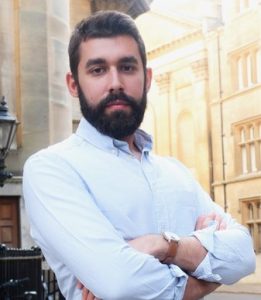On Monday December 09, 2024 at 17:00 pm, in lecture room ΕΑ1, of Kalamaria presmises, Ethnikis Antistaseos 16 a lecture will be given by Dimitris Spathis, Research Scientist, Google. The lecture is organised by the MSc “Data and Web Science” of School of Informatics of AUTH
Title: The era of foundation models – AI for personal health as its ultimate use case
Presenter: Dimitris Spathis, Research Scientist, Google
spathis@google.com – https://dispathis.com
Abstract: The unprecedented success of foundation models like GPT has transformed how we think about artificial intelligence, yet their application to personal health has been limited. In this talk, I will share my journey in building AI for health monitoring. I’ll begin by highlighting our earlier breakthroughs to improve data efficiency and robustness through self-supervision, by leveraging the non-stationarity of biosignals (StatioCL), reducing catastrophic forgetting (Kaizen), enhancing fairness through pre-training (SSLFairness), and learning from multimodal biosignals (CroSSL). The main focus will be on our latest milestone: PaPaGei, the first open foundation model for biosignals. Ever noticed the green light under your smartwatch or the red light on your finger oximeter at the hospital? These ubiquitous sensors use photoplethysmography (PPG) – a fundamental technique for monitoring cardiovascular health, sleep, and overall wellbeing. While domains like text and audio have been revolutionized by foundation models such as BERT, Whisper, and Llama, other data types like biosignals have lagged behind due to data constraints and privacy concerns. PaPaGei changes this paradigm by providing a robust, pre-trained model that researchers and developers can freely build upon. Pre-trained on over 57,000 hours of publicly available PPG data, it demonstrates improvements across 20 health tasks, from sleep monitoring to pregnancy assessment. I will share how this project represents a milestone in a journey that began five years ago with Step2Heart, where we first demonstrated the potential of pre-trained models for health monitoring. Drawing from both academic and industrial perspectives, I will discuss how foundation models like PaPaGei can accelerate progress in health AI while addressing critical challenges in generalization. The talk will conclude with reflections on developing one’s research taste, identifying trends, and drawing inspiration from other fields.
 Dr Dimitris Spathis is a research scientist at Google and a visiting researcher at the University of Cambridge, where he completed his PhD. He was previously a senior research scientist at Nokia Bell Labs, leading efforts in AI for multimodal health. During his studies, he worked at Microsoft Research, Telefonica, and Ocado, while in 2020 he helped start one of the largest studies in audio AI for health (covid-19-sounds.org). His research enables machine learning to handle complex real-world data efficiently, with a particular interest in health sensing. He studies various topics in AI including data-efficiency, multimodality, model robustness/fairness, and signal processing. His recent work has been featured in international media outlets such as the New York Times, BBC, CNN, Guardian, Washington Post, Forbes, and Financial Times. He serves on the program committees of top AI conferences such as AAAI, IJCAI, and KDD, and the editorial boards of Nature Digital Medicine & IEEE Pervasive Computing.
Dr Dimitris Spathis is a research scientist at Google and a visiting researcher at the University of Cambridge, where he completed his PhD. He was previously a senior research scientist at Nokia Bell Labs, leading efforts in AI for multimodal health. During his studies, he worked at Microsoft Research, Telefonica, and Ocado, while in 2020 he helped start one of the largest studies in audio AI for health (covid-19-sounds.org). His research enables machine learning to handle complex real-world data efficiently, with a particular interest in health sensing. He studies various topics in AI including data-efficiency, multimodality, model robustness/fairness, and signal processing. His recent work has been featured in international media outlets such as the New York Times, BBC, CNN, Guardian, Washington Post, Forbes, and Financial Times. He serves on the program committees of top AI conferences such as AAAI, IJCAI, and KDD, and the editorial boards of Nature Digital Medicine & IEEE Pervasive Computing.



